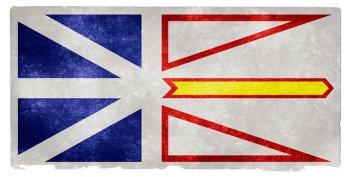rabble is expanding our Parliamentary Bureau and we need your help! Support us on Patreon today!
As expected, the Liberals won a strong majority in Newfoundland and Labrador's election on Monday Nov. 30. Their victory ends the tenure of a Progressive Conservative (PC) government that, under four premiers, has held power since 2003. Dwight Ball, a pharmacist and business owner first elected in 2007, will become the province's 13th premier.
The Liberals were elected in 31 of the province's 40 ridings. During the campaign, there was speculation that the Liberals could win a more overwhelming majority or even every seat in the province.
The PCs won seven seats, concentrated partly in the suburban areas outside of St. John's. All but one of the PC victories were on Newfoundland's southwestern Avalon peninsula. Outgoing premier Paul Davis was re-elected.
The NDP's two running incumbents were also re-elected. NDP leader Earle McCurdy, who has led the party from outside the legislature since March, was defeated in a three-way race in St. John's. The CBC's Terry Roberts reported that McCurdy said he would "count to ten' before laying out his future."
Before the polls closed in Newfoundland, ThreeHundredEight.com was projecting a Liberal count of 30 and a PC count of six. The site had projected four seats for the NDP, who had hoped to pick up new seats.
"It's not the result that you're going for," said Eddy St. Coeur in an phone interview with rabble on election night. St. Coeur is the campaign co-chair for Alison Coffin, a St. John's economist and NDP candidate.
"We had such a great support system from the team that worked around each other in St. John's. And we still felt really connected to different candidates running in ridings outside the Avalon peninsula," he said.
The NDP won five of 48 seats in 2011, four of them in St. John's.
A period of decline
The PCs saw great popularity under Premier Danny Williams, who first took office in 2003. He gained widespread attention for a forthright defence of the province's economic interests and appealed to Newfoundland nationalism. Williams resigned in 2010 after the conclusion of a deal to develop the massive Lower Churchill hydroelectric project.
Williams' immediate successor Kathy Dunderdale led the party to a reduced yet still significant majority in 2011. However, her government began to suffer from a reputation that it was tone deaf and arrogant. Dunderdale resigned and interim leader Tom Marshall promised greater responsiveness. But the party continued to suffer after Frank Coleman, a businessman who was acclaimed as PC leader, unexpectedly quit just before he was set to be sworn in as premier.
In October, all of Newfoundland and Labrador's seven ridings were won by Liberals. Coverage of the provincial campaign has focused in part on the ability of the PCs and NDP to withstand the Liberal surge.
Downturn in oil prices hits province hard
The past several years have seen Newfoundland and Labrador's economy become highly dependent on the oil industry. Consequently, the pronounced downturn in global oil prices have made the province's short-term fiscal situation bleak. Alison Coffin, a St. John's-based economist and NDP candidate, has expressed that long-term planning for recovery must begin soon.
"One of the perspectives we haven't been hearing from a lot of the platforms and a lot of the other parties is the acknowledgement that we are in a recession here in the province," she said in a recently published video, highlighting particular closures and layoffs. "If we do not acknowledge that we are in a recession then we can't plan for it. Here at the NDP, we know that this is happening," she said.
The Liberals have pledged to raise revenue by selling unused and nonessential government assets, reducing unspecified government waste and by attracting new businesses. The Liberal platform cost breakdown document commits to generate $359.1M over four years in improved revenue through economic diversification.
The plans provoked skepticism from Paul Davis, the NDP and an independent analysis by Memorial University of Newfoundland mathematics professor Tom Baird.
In a phone interview with rabble, Coffin expressed that the Liberal plans for improving revenue through business attraction are unrealistic and vague.
"So they're talking about diversification. ...If you're talking about forestry and agri-foods, you're talking about massive capital investment. If you're talking about agriculture, then you have to grow the crops. That doesn't happen overnight," she said.
Ball pointed to agriculture when asked by the CBC's Ramona Dearing for a specific example of where he saw additional revenues coming from.
"These things take more than the time frame that we're going to have for the next election. So realistically speaking, we just don't have the time to come up with something like that," Coffin said, adding that few types of businesses are able to generate the sales suggested by the Liberals' costing.
Cory Collins is a writer and visual artist living in St. John's. He can be contacted via Twitter @coryGcollins or corycollins.ca.


Comments
Do
Don't